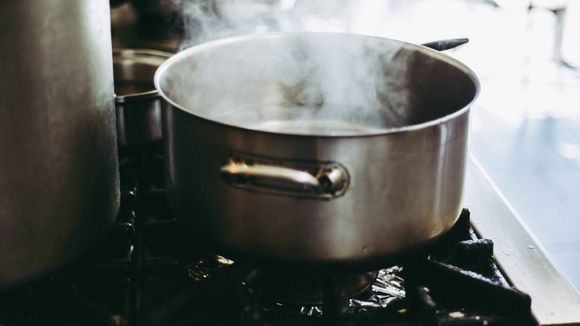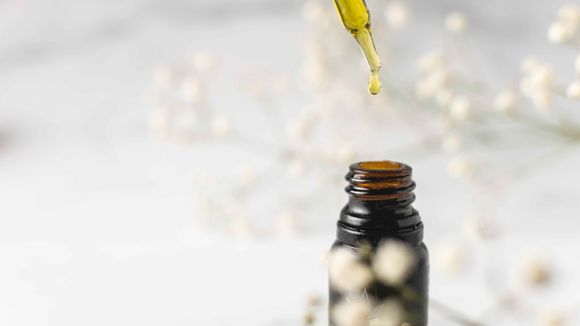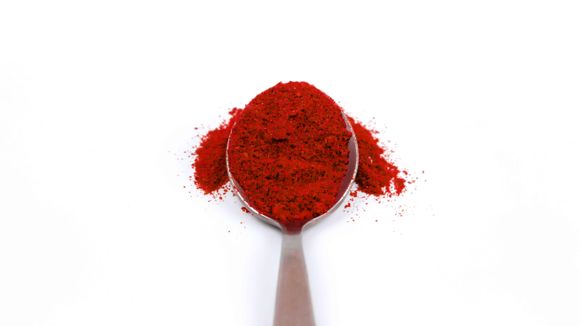What are nasal polyps?
Nasal polyps are growths that develop in the nose or sinuses. They are actually quite common and can be caused by allergies, inflammation or infection.
Usually, nasal polyps do not cause any symptoms. Unlike some other types of polyps, they are usually not cancerous.
In some cases, however, there are symptoms. These include itching, runny nose, sneezing, difficulty breathing, etc.
Doctors can prescribe steroid nasal sprays or prednisone for relief, which can stop symptoms or completely eliminate polyps. However, symptoms and polyps may reappear.
If you are looking for natural alternatives to drugs, this article explores which treatments can work best and be most effective.
It has been shown that most treatments improve the symptoms and discomfort associated with nasal polyps. None has been proven to completely remove nasal polyps.
Natural remedies for nasal polyps
Cayenne pepper (cayenne pepper)
This chilli and spice contains capsaicin. Studies have shown that this compound can help clear the sinuses.
In a 2011 study, it was effective as a nasal spray, while in a more recent study in 2014 it was effective when taken internally. [ [ref. 1] ]
A year later, it is shown that capsaicin relieves inflammation, opens the nasal passages and increases immunity. This can play a small role in relieving the symptoms of polyps in the nose and the causes of polyps themselves.
How to use cayenne pepper:
- Add plenty of cayenne pepper to different recipes to your taste. For most people, 1-2 teaspoons (tsp) is the usual amount, however, be careful with the chilli if you have a sensitive stomach.
- You can also prepare hot cayenne pepper tea by mixing 1-2 teaspoons of spiced cayenne pepper into 1 cup of boiling water. Sweeten with raw honey or season with other herbs to taste to make it more pleasant.
Neti Pot
The use of Neti Pot for nasal cleaning can alleviate symptoms caused by nasal polyps. It can also help to address the causes of polyps, such as allergies or sinus infection.
Nasal irrigation involves the use of a small kettle, which inserts a warm distilled or sterilized saltwater solution through the nasal passages and sinuses. When used correctly, nasal irrigation is a useful addition to the treatment of sinuses or allergies, according to a 2012 study [ [ref. 2] ]
It is important to know how to use a neti pot properly for positive health effects. Here are the instructions:
- Use warm water distilled or sterilized to fill the kettle. Filtered or purified water is also suitable. Prepare warm water by boiling it first and then let it cool. You can use warm tap water, but remember that you need to clean it first. Never put hot water directly in your nose.
- Mix 1-2 teaspoons of salt to taste. The solution should have a salty taste such as tears or sweat.
- Tilt your head to one side and drop the solution through one nostril, pull through the other over the sink. Make sure you don't clog your nose while this is happening. Let the water run out completely on its own.
Steam inhalation
Besides the use of neti pot, simple inhalation with hot steam can also help. Research shows that along with nasal irrigation, steam inhalation can alleviate symptoms common in nasal polyps. [ [ref. 3] ] Headache caused by inflammation of the sinuses is the most noticeable symptom.
Steam inhalation can take the form of a simple shower, bath, steam bath, through humidifiers or even steam from water boiled on a pot.
Steam inhalation is done very easily. During a shower or bath, you can inhale the fumes, or put a saucepan on the hob, waiting for the water to boil and inhale its steam. Humidifiers can also help, but make sure to carefully read and follow the instructions of the product.

Tea tree oil
Tea tree (Melaleuca alternifolia) is a well-known essential oil. [ [ref. 4] ] Research supports it for its properties to reduce itching and deal with inflammation and infection as an antimicrobial agent. This can help both the causes and symptoms of polyps in the nose.
How to use tea tree oil? Make a diluted solution of tea tree essential oil (3-5 drops of oil every 30 ml of base oil). Olive oil or sweet almond oil are examples of suitable base oils. With a clean cotton swab, rub the solution into the nasal passages.










